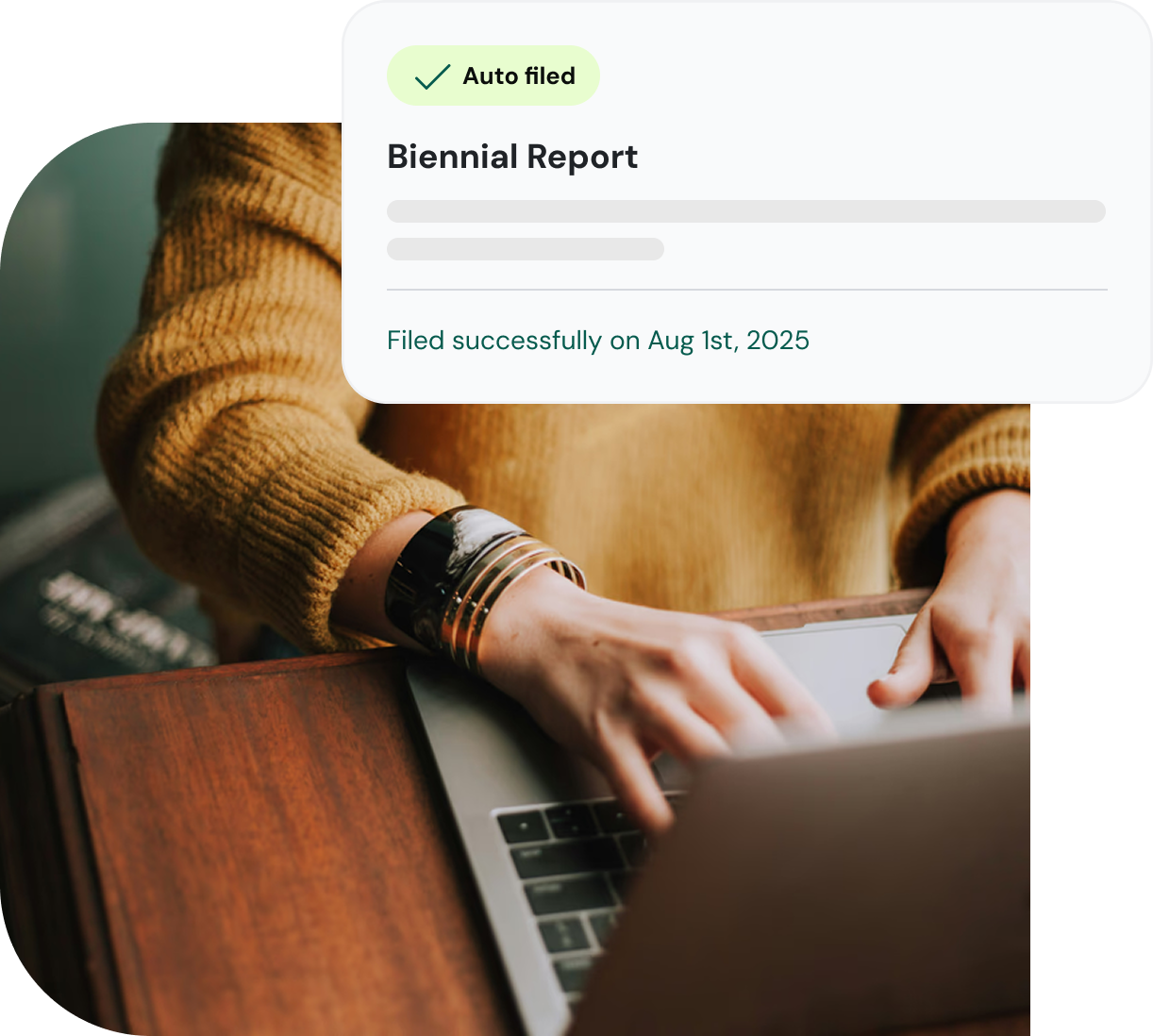South Carolina Annual Report Guide: A Comprehensive Walkthrough
Filing an annual report in South Carolina is a key compliance step for many businesses. While some entities submit a dedicated report to the Secretary of State, corporations file their annual report as part of their state income tax return. This process keeps public records updated with accurate business information, ensures transparency, and helps businesses maintain good standing with the state.

.webp)
every entity to file the same report, the state integrates corporate annual reporting with tax filings and assigns separate processes for nonprofits and partnerships.
By keeping records current, South Carolina ensures
effective regulatory oversight while providing the public
with accurate information about registered businesses.
- Corporations: This includes both C Corporations and S Corporations.
- Nonprofit Corporations: These organizations have their own specific annual registration requirements.
- Limited Liability Partnerships (LLPs): LLPs are required to renew their certificate of authority annually.
- Corporations (C Corporations): Form SC1120 (South Carolina Corporate Income Tax Return), including Schedule D.
- Corporations (S Corporations): Form SC1120S (S Corporation Income Tax Return).
- Initial Annual Report (CL-1): Domestic corporations must file this form within 60 days of starting business.
- Nonprofits: Basic details such as the organization’s name, address, and purpose, filed annually through the Charities Online system or by mail.
- LLPs: Application to renew a Certificate of Authority, with partner and business information.








- Corporations (C & S Corps): File with the corporate income tax return by the 15th day of the third month following the end of the fiscal year.
- Initial Annual Report (CL-1): Due within 60 days of starting business for domestic corporations.
- Nonprofit Corporations: File annually by April 1 (filing opens January 1).
- LLPs: Must renew their certificate of authority every year (due annually).
- Initial Corporate License Fee (Form CL-1): $25 (one-time fee).
- Nonprofit Annual Registration: $50 for online filings; $60 for paper filings.
- LLCs: No annual report fees with the Secretary of State.
- LLPs: Standard renewal fees apply (check current rates with the Secretary of State).




How to File Your South Carolina Annual
Report: A Step-by-Step Guide
Step 1
Determine Your Filing Requirements:
Identify whether your business entity
is required to file an annual report in
South Carolina.
Step 3
Complete the Correct Forms:
Fill out the appropriate forms,
such as the SC1120 or SC1120S
for corporations, or the nonprofit
annual registration.
Step 5
Updating the
company’s NAICS
code(s)







%201.47.16%20p.m..png)
Step 2
Gather Necessary Information:
Collect all the required information
for your specific entity type, as
outlined above.
Step 4
File with the Appropriate Agency:
Corporations file their annual report
as part of their income tax return with
the South Carolina Department of
Revenue. Nonprofits can file online through the
Charities Online system or by mail.
Step 6
Confirm Filing: After submitting
your report, verify that it has
been accepted and that your
business
is in good standing.
Step 1
Determine Your Filing Requirements: Identify whether your business entity is required to file an annual report in South Carolina.

Step 2
Gather Necessary Information: Collect all the required information for your specific entity type, as outlined above.

Step 3
Complete the Correct Forms: Fill out the appropriate forms, such as the SC1120 or SC1120S for corporations, or the nonprofit annual registration.

Step 4
File with the Appropriate Agency: Corporations file their annual report as part of their income tax return with the South Carolina Department of Revenue. Nonprofits can file online through the Charities Online system or by mail.

Step 5
Pay Filing Fees: Submit the required filing fees along with your report.

Step 6
Confirm Filing: After submitting your report, verify that it has been accepted and that your business is in good standing.







- Corporations: The annual report is a component of the corporate income tax return.
- Nonprofits: Must file an annual registration with the Secretary of State.
- LLCs: Generally, no annual report is required with the Secretary of State, but other tax filings are necessary.
- LLPs: Must renew their certificate of authority annually.
- Late Filing Penalty (Corporate Income Tax Return): 5% per month, not to exceed 25% of the tax due.
- Late Pay Penalty (Corporate License Fee): 0.5% per month, not to exceed 25%.
- Administrative Dissolution: Extended non-compliance can lead to the administrative dissolution of your business, resulting in the loss of good standing and the ability to conduct business in South Carolina.








Do LLCs in South Carolina need to file an annual report?

No, most LLCs in South Carolina are not required to file an annual report with the Secretary of State. However, they must still meet their annual tax obligations.
How do I file an initial annual report in South Carolina?

Domestic corporations must file the Initial Annual Report (Form CL-1) within 60 days of commencing business.
What is the penalty for filing a late annual report in South Carolina?

For corporations, the late filing penalty is 5% per month, up to a maximum of 25% of the tax due. There is also a late payment penalty for the corporate license fee.
Can I file my South Carolina annual report online?

Yes, online filing is available for general business filings through the SC Secretary of State's Business Entities Online system and for nonprofits through the Charities Online system.
Need a hand with your
South Carolina Annual Report?
Palm can prepare and submit your filing, serve as your registered agent, and monitor compliance year-round so you can stay focused on growth.
File Your South Carolina Annual Report Now